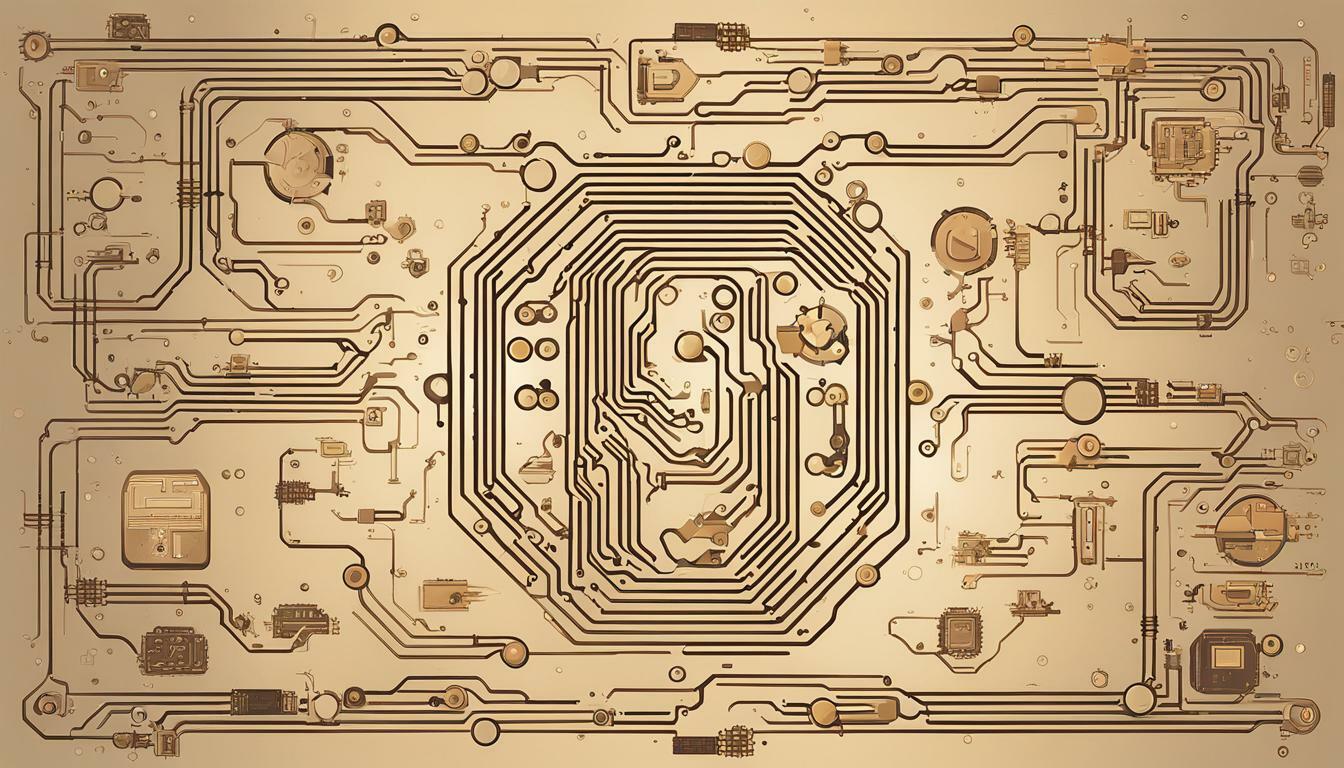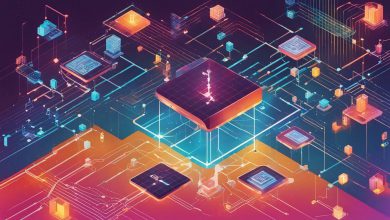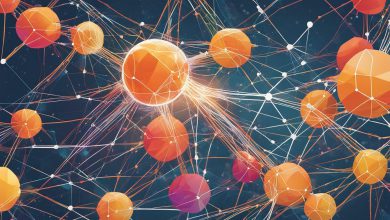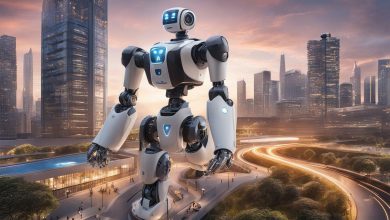
Artificial Intelligence has come a long way since its early conceptualization. From its humble beginnings as a theoretical field of study, AI has evolved into a transformative technology with countless real-world applications. Understanding its development timeline is crucial for comprehending its current-day significance and predicting its future impact.
In this section, we will explore the history of AI and its key breakthroughs, tracing its development over time. From early logic-based systems to contemporary deep learning algorithms, you will gain a comprehensive understanding of AI’s transformative journey.
Key Takeaways:
- The AI Evolution is a long and transformative journey from its conceptualization to contemporary applications.
- Understanding the history of AI and its development timeline is crucial for comprehending its current-day significance and future impact.
- From early logic-based systems to contemporary deep learning algorithms, AI has come a long way in the past few decades.
From Humble Beginnings to Technological Advancements
Artificial Intelligence (AI) has come a long way since its early beginnings. Over the years, AI has seen a series of breakthroughs, leading to several technological advancements in the field. The evolution of AI has been remarkable, marked by key milestones that have paved the way for its growth and development.
The Early Days of AI
The history of AI dates back to the 1950s, when researchers began exploring the concept of machines that could “think.” This era saw some of the earliest breakthroughs in AI, including the development of the first neural network and the creation of the first AI program that could play a game of checkers. The 1960s and 1970s saw the emergence of expert systems and natural language processing, two key innovations that laid the foundation for modern AI.
The Rise of Machine Learning
Advances in computer processing power and storage capabilities brought about a new era of AI in the 1980s and 1990s. This period saw the rise of machine learning, a subfield of AI that focuses on the development of algorithms that can learn from data. This breakthrough paved the way for other significant AI advances, including the development of speech recognition software and facial recognition technology.
The Emergence of Deep Learning
In recent years, deep learning has emerged as a game-changer in the field of AI. This subfield focuses on the development of artificial neural networks, modeled after the human brain, that can learn complex patterns in data. This technology has been responsible for a range of breakthroughs, including the development of self-driving cars and advanced image and speech recognition technologies.
Technological advancements in AI have paved the way for significant breakthroughs, transforming the way we live and work. The evolution of AI has been marked by key milestones, and its continued growth promises to lead to further innovations in the field.
The Impact of AI on Society
Artificial Intelligence has revolutionized society in numerous ways, making it faster, efficient, and more accurate. AI has made its way into diverse industries and sectors, from healthcare and finance to transportation and beyond. With its constant innovations and advancements, AI is changing the way people work and live their lives.
Healthcare: Healthcare is one of the most significant fields impacted by AI. With machine learning algorithms and predictive analytics, AI is transforming the way healthcare professionals treat patients. AI-powered devices and software are assisting doctors in diagnosing diseases, interpreting images, and designing personalized treatment plans. AI is also improving patient experiences with virtual health assistants that can provide personalized care, telemedicine, and chatbots that automate appointment scheduling and answer patients’ queries.
Finance: Financial institutions have been increasingly adopting AI to develop advanced analytics, drive customer interactions, and automate back-office functions. AI-powered predictive analytics and machine learning algorithms are being used to identify fraud, conduct risk assessments, and offer personalized investment advice. Chatbots are also being employed by banks and insurance companies to automate customer service, simplify transactions, and provide 24/7 assistance.
Transportation: AI is revolutionizing the transportation industry, from self-driving cars to smart traffic management systems. Self-driving cars are being developed that can interpret data from sensors and cameras to navigate roads and traffic. AI-powered traffic management systems can help reduce congestion and improve traffic flow by analyzing traffic patterns and advising on the optimal route. AI is also being used to improve public transportation by optimizing routes and reducing waiting times for passengers.
Ethical Considerations: As AI continues to transform society, ethical considerations have come to the forefront. Issues such as privacy, bias, and job displacement are critical areas that need to be addressed. With AI’s predictive analytics, there is the potential for algorithmic bias, which may lead to unfair treatment and discrimination. It is crucial to ensure that ethical guidelines and regulations are in place to govern the development and use of AI.
The Future of Artificial Intelligence
As AI continues to evolve, experts predict that it will revolutionize various aspects of our lives. From healthcare to education, AI has the potential to transform the way we live and work.
One of the most significant trends in the future of AI is the increasing use of robotics and automation. With advances in robotics technology, we can expect to see more robots taking on tasks that are dangerous or monotonous for humans, such as cleaning hazardous waste or assembling products in factories.
Machine learning, a type of AI that enables computers to learn and improve from experience, is also expected to have a significant impact on the future of AI. As machine learning algorithms become more sophisticated, they will be able to analyze data at a much faster rate, making it possible to identify patterns and insights that were previously impossible to detect.
The AI Revolution
Another significant trend in the future of AI is the AI revolution. With the increasing integration of AI into society, we can expect to see significant changes in various industries. For example, in healthcare, AI-powered diagnostic tools can help doctors diagnose diseases and develop treatment plans more quickly and accurately.
In finance, AI can be used to analyze financial data and predict market trends, helping investors make more informed decisions. And in transportation, self-driving cars powered by AI can improve safety and reduce traffic congestion.
However, the continued evolution of AI also raises concerns about its impact on the job market. As robots and automation become more prevalent, many jobs may become obsolete, leading to unemployment and a need for skill retraining and education.
Overall, the future of AI is bright, with endless possibilities for innovation and growth. As we continue to push the boundaries of what is possible with AI, we must also remain mindful of the ethical considerations and challenges inherent in its integration into society.
The Conclusion
Throughout its journey, AI has undergone a remarkable evolution, transforming from a mere concept to a powerful tool that has revolutionized numerous industries and sectors. From its humble beginnings to technological advancements and breakthroughs, AI has made significant strides in the field of technology.
The impact of AI on society has been profound, with its integration into various industries leading to increased efficiency, accuracy, and productivity. However, its integration has also raised ethical considerations and challenges that must be addressed.
Looking forward, the future of AI is bright, with emerging trends and predictions set to revolutionize the field even further. The potential applications of AI in areas such as robotics, automation, and machine learning are vast, with the potential to enhance our lives in numerous ways.
Overall, AI’s ongoing impact and potential for future advancements make it an exciting and transformative journey to follow. As we continue to witness the AI revolution unfold, it is crucial to consider its implications and work towards solutions that benefit society as a whole.
FAQ
Q: What is AI?
A: AI, or artificial intelligence, refers to the simulation of human intelligence in machines that are programmed to think and learn like humans. It encompasses a range of technologies and applications that enable computers to perform tasks that typically require human intelligence.
Q: What are some examples of AI applications?
A: AI has found applications in various industries and sectors. Some examples include virtual personal assistants, such as Siri and Alexa, autonomous vehicles, facial recognition systems, chatbots, and recommendation algorithms used by streaming platforms and e-commerce websites.
Q: How does AI work?
A: AI systems work by using algorithms and large amounts of data to analyze patterns, make predictions, and solve complex problems. Machine learning, a subset of AI, allows machines to learn and improve from experience without explicit programming.
Q: What are the benefits of AI?
A: AI offers numerous benefits. It can automate repetitive tasks, improve efficiency and accuracy, enable personalized experiences, enhance decision-making processes, and drive innovation in various industries. AI also has the potential to tackle societal challenges and improve healthcare outcomes.
Q: What are the ethical considerations surrounding AI?
A: The use of AI raises ethical considerations and challenges. These include issues related to privacy, security, bias, and job displacement. It is essential to develop and implement responsible AI practices to mitigate these ethical concerns and ensure the technology is used for the benefit of society.
Q: What does the future hold for AI?
A: The future of AI is promising. As technology advances, we can expect to see further advancements and innovations in areas such as robotics, automation, and machine learning. However, there will also be challenges, such as the impact on the job market and the need for ethical guidelines to guide AI development and usage.








